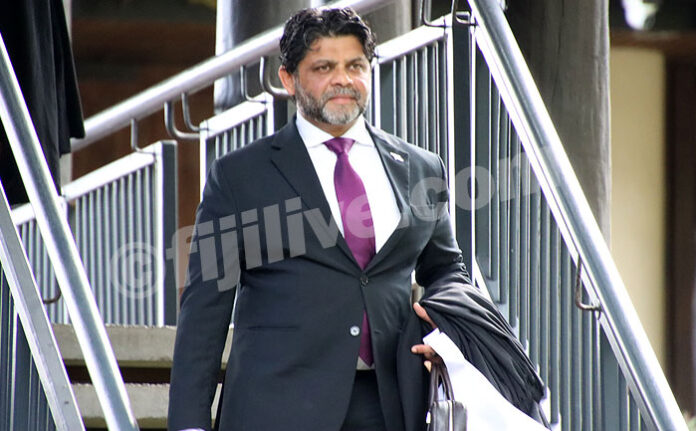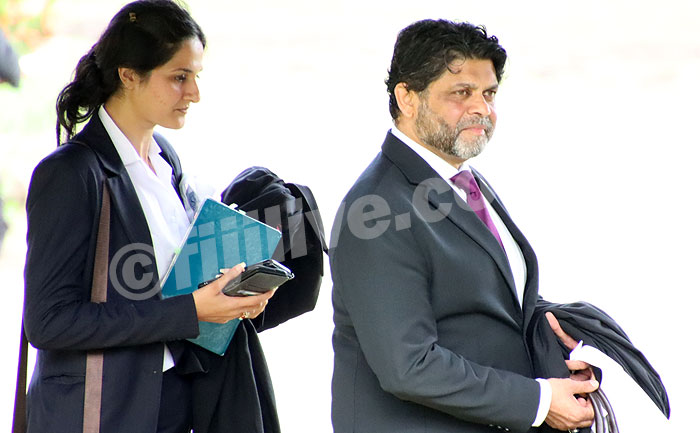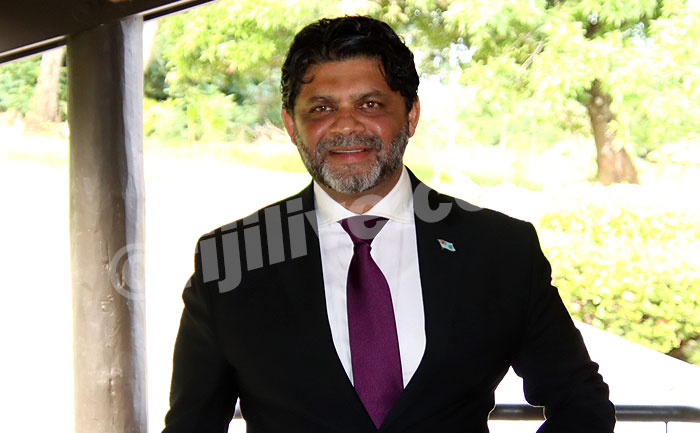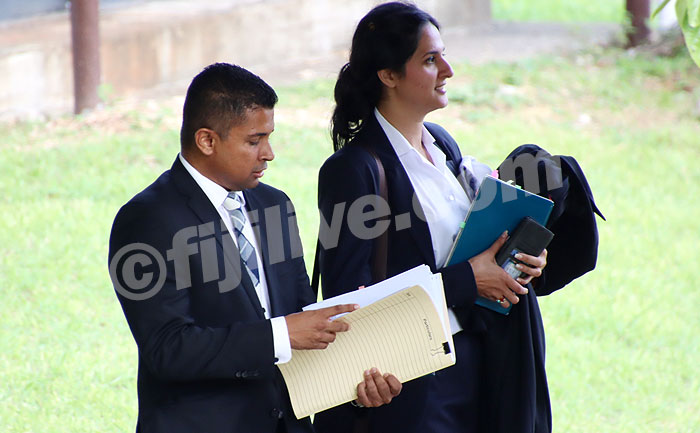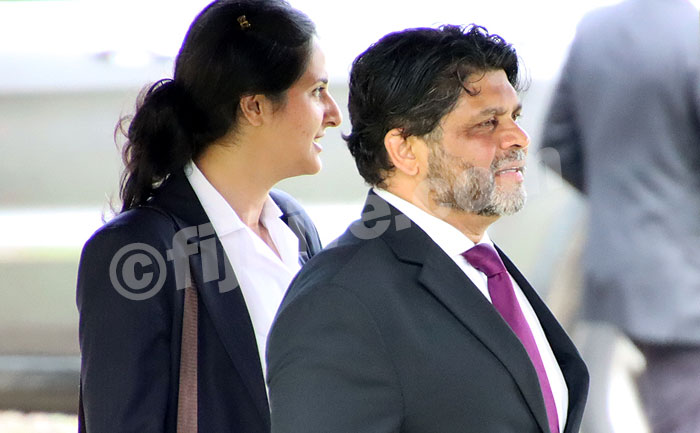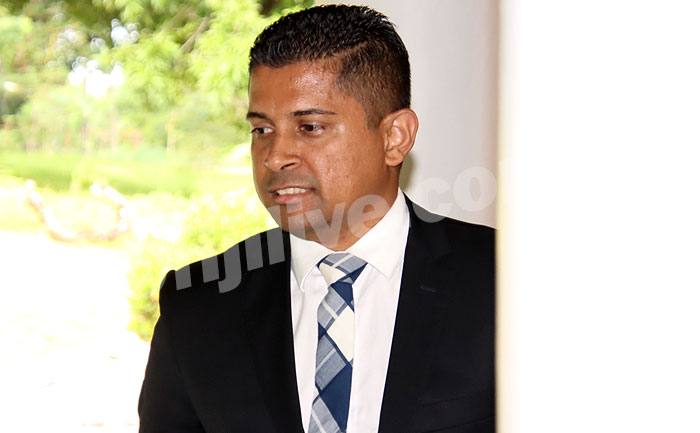The Supreme Court of Fiji has refused former Attorney-General Aiyaz-Sayed-Khaiyum and the former Supervisor of Elections Mohammed Saneem’s application for leave to intervene in the Reference on a Miscellaneous Petition No. MISC 01 of 2024.
The matter was called before Supreme Court Judge Justice Brian Keith and Justice Sir Terence Arnold, this morning.
The Supreme Court heard that Sayed-Khaiyum’s application to be joined as an intervener is based on several grounds, the two most important being:
- First, because of his background as a former AG and Minister for Justice under various governments since 2007, he has extensive experience in both the Judicial Services Commission’s appointment process and, more particularly, the background to the drafting and adoption of the 2013 Constitution. Sayed-Khaiyum submitted that the Court would be assisted by his legal submissions concerning the philosophy, background, drafting, purpose, application, and intended interpretation of the Constitution
- Second, because he is facing a criminal charge sanctioned by one of the public officers referred to in the Reference, the Director of Public Prosecutions, he has a particular interest in the issues raised by the reference.
In their ruling, both Justice Keith and Justice Arnold ruled that they are concerned in this Reference with a specific aspect of the Constitution, namely the interpretation and application of section 105(2)(b) of the Constitution, specifically, the reference to a person not having “been found guilty of any disciplinary proceeding involving legal practitioners…”
“We think it unlikely that there will be much, if anything, in the background that could assist with the interpretation of that particular requirement. We acknowledge that the Constitution requires that those appointed to several offices must meet the qualifications for appointment as a judge and that there may be some background as to why that requirement applies concerning those offices. But that does not bear on the fundamental issue of interpretation raised by the Reference.”
“As we understand it, the 2013 Constitution was not the result of the type of public process that preceded the adoption of the United States Constitution. Rather, it was the work of a relatively small group of officials, of which Sayed-Khaiyum was one. If we were to grant him leave to assist the Court with matters of background, we would have also to seek input from other members of the group. This is particularly so because Sayed-Khaiyum, no matter how hard he tries, cannot be dispassionate given his interest in the outcome of the Reference.”
“Allowing evidence of this type would be inconsistent with the nature of a reference, which is by way of case stated: see rule 27 of the Supreme Court Rules,” they said.
Test
There is nothing in the Supreme Court Rules which identifies the test to be applied when determining whether someone should be permitted to intervene in a matter proceeding in the Supreme Court.
In these circumstances, the High Court Rules and the Court of Appeal Rules apply: see rule 31 of the Supreme Court Rules – There is nothing in the Court of Appeal Rules on the topic, both Sayed-Khaiyum and Saneem apply to intervene pursuant to Order 15 rule (6)(b)(i) and (ii) of the High Court Rules.
“In our opinion, these rules are of little help: they relate to the joinder of parties whereas a reference to the Supreme Court under section 91(5) of the Constitution does not have parties in the conventional sense. Such a reference is more akin to an application for judicial review because, like an application for judicial review, it is asking the Court to rule on the legality of a decision in public law – in this case, the decision to appoint John Rabuku and Justice Alipate Qetaki to their respective offices. The test for the standing of interested participants in applications for judicial review is set out in Order 53 rule 9(1) of the High Court Rules, any person who appears to the Court to be a proper person to be heard.”
“This is to be contrasted with the test for bringing an application for judicial review in Order 53 rule 3(5) of the High Court Rules, namely that the applicant must have a sufficient interest in the matter to which the application relates…”
“There has been an increasingly benevolent approach to standing in recent years. One important trend has emerged. It is nowadays less important for a prospective intervener to show that they are directly affected by the outcome of the case. Their interest can be much broader than that.”
The miscellaneous petition in the matter of a reference by Cabinet for an opinion from the Supreme Court on matters concerning the interpretation and application of sections (105)(2)(b), 114(2), 116(4) and 117(2) of the Constitution of the Republic of Fiji – has been adjourned to later in June for hearing.



